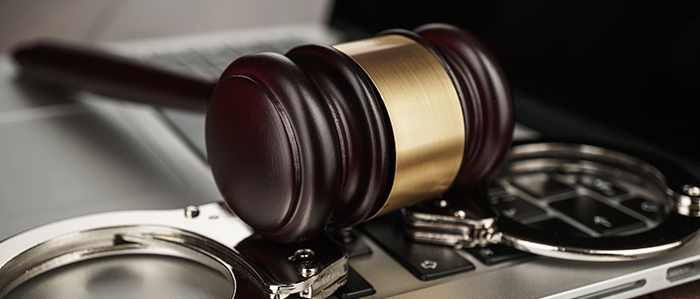Using the service of a bail bondsman is probably the last thing on anyone’s mind. Unfortunately, there are times when you might find yourself in a situation where you might need to understand bail bonds. Whether trying to determine this for a friend, relative, or yourself, it is important to understand what is and is not legal. This article attempts to guide you through the process of how bail bonds work in the state of Florida.
How Do The Courts Determine Bail?
When law enforcement arrests someone, within 24 hours the arrestee must be brought before a judge for a First Appearance hearing. During the First Appearance, the judge will determine if there’s probable cause that a crime was committed. If probable cause is not found, the arrestee will be released on his or her own recognizance. If probable cause is found, the judge may still ROR the arrestee but will most likely set a bond amount. The amount of bond is typically determined by the severity of the crime.
What Are Bail Bonds?
A bail bond is a monetary guarantee that a defendant will attend all court matters pertaining to their arrest. Depending on the type of crime, when the state arrests someone, they have two options: they have the option to remain in jail until their court date or they have the option to bond out. To bond out, a person must pay the full bail in cash or find a bond agent to pay on their behalf.
What Is A Bond Agent?
According to Florida Statute 648.25, a bond agent is an individual appointed by an insurer by power of attorney to execute or countersign bail bonds in connection with judicial proceedings who receives or is promised money or other things of value. A bond agent is someone who pays peoples bail in exchange for collateral.
Why Would A Person Use A Bond Agent Instead Of Paying Cash?
When a person pays cash for bail, they must be able to provide the full amount. When a person uses a bonds agent, they are only required to pay a portion of the bail as long as they guarantee the remainder. Florida law dictates that for bail that is set at $1,000 or less, then you will only need to pay a bonds agent $100. For any bail set above $1,000, then the bail agent may only charge 10 percent of the bail amount.
If I Guarantee Someone’s Bond, Can The Court Hold Me Liable?
If you sign on as a guarantee to someone’s bond and they do not attend their court appearances, then you will be held responsible for paying the remainder of the bond. To guarantee a bond, you will most likely need to offer some sort of collateral. This collateral could become the property of the bond agent if the defendant or accused disappears.
Should I Seek Legal Advice Before Going To A Bond Agent?
It is always recommended to seek legal advice when dealing with matters of the court. The lawyers at Valrico Law Group will attend First Appearance with its clients to ensure that if bail is set, it is a reasonable amount and will assist their clients in hiring reputable bonds agents to bail them out.


